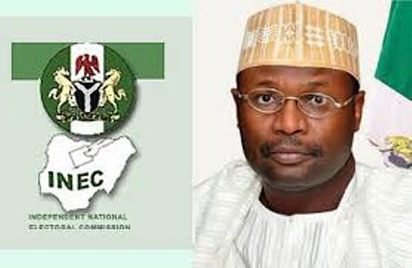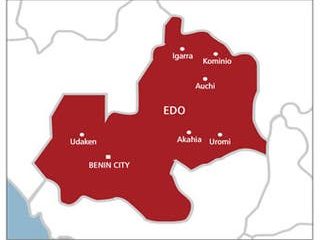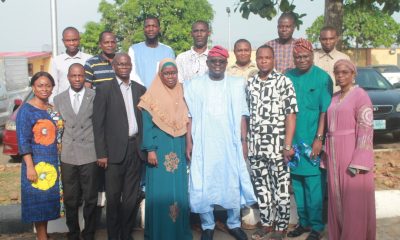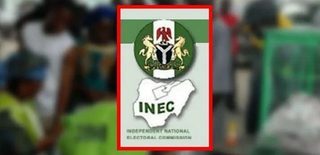News
Power Of Incumbency, Thuggery Undermining Electoral Process – INEC

The Independent National Electoral Commission (INEC) wants political parties to do an introspection on the conduct of their candidates and supporters during elections.
INEC Chairman Prof. Mahmood Yakubu, at a meeting with party chairmen and leaders in Abuja on Tuesday, also wants the issue of use of thugs during elections to harass election officials, intimidate voters and disrupt processes, to be addressed by the parties.
Prof. Yakubu described as disturbing, reports of clashes between opposing parties with claims and counter claims of innocence or culpability, in the forthcoming November governorship elections in Bayelsa, Imo and Kogi States.
“At the same time, I must also acknowledge the perennial complaints from some political parties that the power of incumbency is used in some states to restrain some parties and candidates from access to public facilities for media campaigns and outdoor advertising through exorbitant fees or outright denial.
“This often leads to the mutual destruction of advertising materials such as billboards, resulting in altercation and violence involving supporters of opposing political parties,” he stated.
The INEC Chairman who said the issues would be discussed at the Inter-Agency Consultative Committee on Election Security (ICCES) on Friday, urged party leaders to call their supporters to order.
He explained that the meeting was called to review the conduct of general elections, and to prepare for the November 11 governorship election.
“For the commission, we are looking at some of the lessons learnt from the general election to improve our performance in the forthcoming elections.
“We are focusing, among other issues, on election technology, recruitment and training of ad hoc staff, the conduct of some of our regular and ad hoc officials, security issue, logistics in particular and our relationship with other service providers in general.
“I also appeal to party leaders for similar introspection on the conduct of your candidates and their supporters,” he demanded.
According to him, the series of engagements with election stakeholders is one of the best ways to learn lessons and continue to improve elections and the electoral process in Nigeria.
Prof. Yakubu stated that political parties played a leading role in the 2023 general elections, fielding candidates in the presidential, governorship and legislative elections.
He added that at the conclusion of the election, seven political parties won senatorial seats, eight parties in the House of Representatives and nine parties in the State Houses of Assembly.
“The commission appreciates the role of political parties through the Inter-Party Advisory Council (IPAC) in voter education within the limits of available resources both during off-cycle and the general election.
“Your robust engagement with the National Assembly contributed a lot to the 4th and 5th alterations to the 1999 Constitution of the Federal Republic of Nigeria and the enactment of the Electoral Act 2022.
“Working in partnership with us, political parties also supported the expansion of voter access to polling units and many innovations introduced by the commission, including the online pre-registration of voters, nomination of candidates and the accreditation of party agents.
“You also supported the commission’s effort to deepen the use of technology in voter accreditation and result management as well as the provision of assistive devices in aid of persons with disability during elections,” he said.
IPAC Chairman Yabagi Sani, urged the judiciary not to determine petitions before it on the outcome of the elections, “on some perverse public policy rationale or technicalities, but, rather, on reasoned and reasonable interpretation of substantive and procedural law.”
Sani told the judiciary that Nigerians demand fairness, equity and justice.
He disclosed that IPAC has referred the European Union Election Observer Mission (EU/EOM) report on the conduct of the elections, to its “2023 Elections Review Committee set up to unearth all immediate and remote causes surrounding the conduct and the outcome of the election.”
The IPAC Chairman decried the failure of INEC to transmit the presidential election results on the INEC Result Election Viewing (IREV) platform at the polling units, due to technical glitches, but warned against state governors pressuring Resident Electoral Commissioners (RRC) and returning officers on INEC falsify results of the November 11 governorship election.
“The Adamawa state 2023 governorship election result declaration saga and the embarrassment caused INEC and the nation at large is a case in point. The prosecution of the Adamawa REC in court by INEC is highly desirable and commendable.
“Equally desirable is action by all relevant security agencies to check the misuse of state resources in violation of the Electoral Act 2022 which prohibits ‘the use of state apparatus to the advantage or disadvantage of any political party or candidate’ (section 92(2)).”
New Telegraph

















